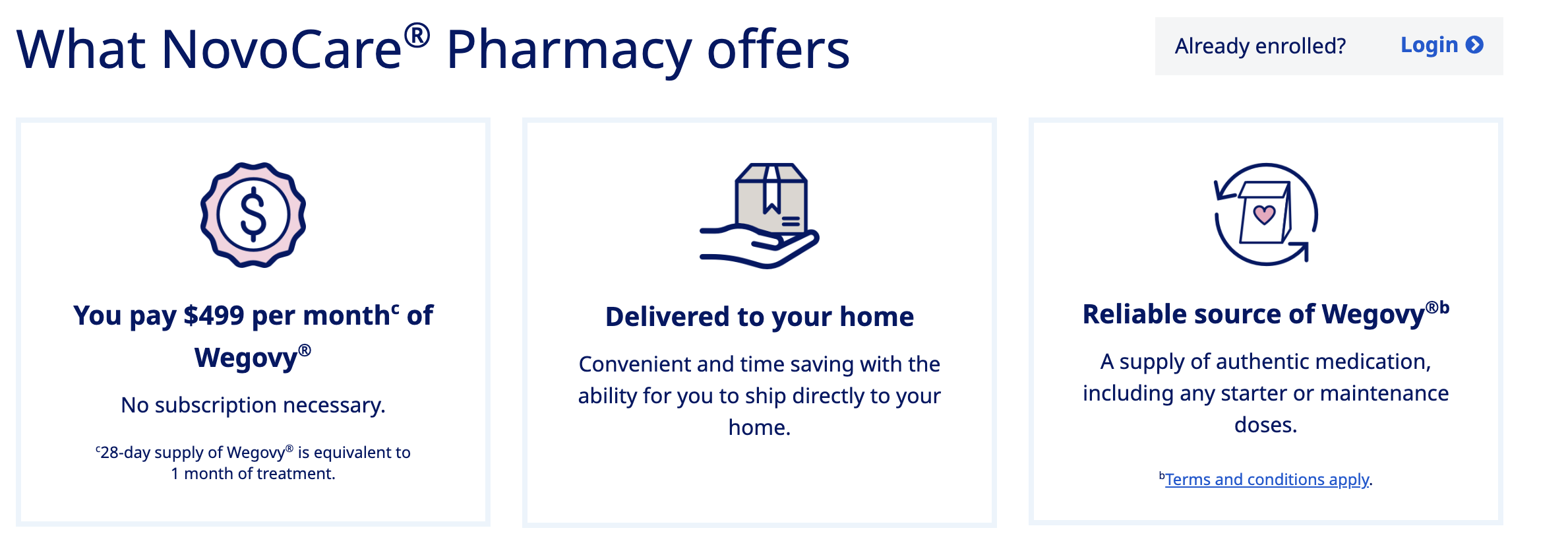The End of an Era: How FDA’s Shortage Declaration and Novo’s DTC Move Are Crushing MedSpa Revenue Streams
The weight loss industry is undergoing a seismic shift as pharmaceutical giant Novo Nordisk launches its direct-to-consumer (DTC) NovoCare® Pharmacy program, offering Wegovy for a flat rate of $499 per month. This strategic move comes on the heels of the FDA’s announcement last month that the Wegovy and Ozempic shortages are officially over – a seemingly positive development that has unexpectedly positioned thousands of medspas across the country for significant financial challenges.
The MedSpa Boom That Filled the GLP-1 Gap
For years, while Wegovy and Ozempic remained in short supply and largely inaccessible to the average consumer, medspas stepped in to fill a critical market gap. Working with compounding pharmacies, these aesthetic wellness centers provided compounded semaglutide injections to patients at approximately $400 per month – without the insurance hurdles that made the branded medications so difficult to obtain.
Novo Nordisk’s Strategic Counterstrike
Novo Nordisk’s announcement of their $499 monthly direct-to-consumer program appears precisely calibrated to cut off this workaround. By pricing their FDA-approved Wegovy just slightly above the compounded alternatives, they’re targeting the exact demographic that medspas have been serving.
The Financial Impact on MedSpas
The consequences for medspas could be severe and immediate:
- Revenue Collapse: Facilities that built their business models around semaglutide services face potential losses of 30-40% of their revenue stream.
- Staff Reductions: Without the steady income from weekly weight loss patients, many medspas will be forced to reduce staffing.
- Facility Closures: Smaller operations or those that heavily invested in weight management services may face complete closure.
“Semaglutide treatments became a lifeline for many medspas during the pandemic recovery, and a number of medspas are reporting that weight loss services using compounded semaglutide represent 30-40% of their total revenue in just two years. This is going to hit a lot of people hard.”
-Shannon Hayes, Editor-in-Chief, Medspa Mastery
The Ripple Effect Across the Wellness Industry
The impact extends beyond individual medspas:
- Compounding Pharmacies: These facilities, already under pressure from pharmacy benefit managers (PBMs), face further squeeze on a major revenue source.
- Equipment Leasing Companies: Businesses that financed the expansion of medspas for weight management services may see increased default rates.
- Supporting Services: From marketing agencies specialized in medspa promotion to supply chain vendors, many businesses interconnected with the medspa industry will feel downstream effects.
Can MedSpas Adapt?
Industry experts suggest several potential adaptation strategies for medspas:
- Diversification: Accelerating the development of other service lines to replace lost revenue
- Membership Models: Creating value-based subscription services that bundle traditional aesthetic treatments
- Partnership Approaches: Some medspas may seek to partner with primary care providers who can prescribe FDA-approved GLP-1s
- Weight Loss Supportive Treatments: Leaning in to treatments that address sagging skin, volume loss and other side effects of dramatic and quick weight loss such as fillers, Sculptra, and skin tightening and toning (e.g. EmSculpt).
Sorting Fact from Fiscal Fear: What the New Pharma Tariff Really Means for Your Medspa
Social media buzzing about a 100% pharma tariff? Get the real facts on how new import taxes will impact your Medspa’s Botox, injectables, and pricing. Separate fear from reality.
White Hats, Buckle Up: A Response to ELLE’s Med Spa Exposé
ELLE’s investigation hits real issues—counterfeits, credentials, and thin oversight. Here’s the part headlines skip: how ethical med spas prove authenticity, competency, and cold-chain safety in plain sight—and what patients should ask for every time.
Rhode Island Medical Spa Laws 2025: New Safety Act Requirements for Practice Owners
New legislation establishes mandatory facility licensing and enhanced supervision protocols for all Rhode Island medical spas - EFFECTIVE IMMEDIATELY! Rhode Island medical spa owners face significant regulatory changes following Governor Daniel McKee's signing of the...
The Bottom Line
Novo Nordisk’s $499 direct-to-consumer Wegovy program represents a calculated business move that will reshape the weight management landscape.
For medspas, it signals the end of a lucrative but ultimately unsustainable business model and forces a rapid pivot to new service offerings.
Patients may benefit from more regulated access to GLP-1 medications, but may lose the personalized care and support that many medspas provided alongside their weight management treatments.
As one industry insider put it,
“This isn’t just about a pharmaceutical company cutting out compounders – it’s about redefining who controls patient access to innovative treatments. Medspas are just the first casualty in what will likely be a much larger transformation of healthcare delivery.”















